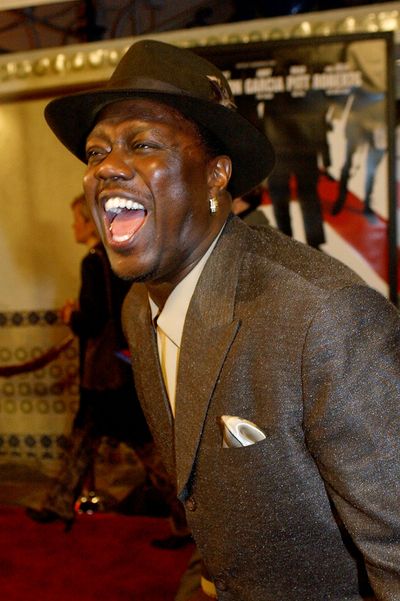Comedian, film star Bernie Mac dies at 50

Bernie Mac blended style, authority and a touch of self-aware bluster to make audiences laugh as well as connect with him. For Mac, who died Saturday at age 50, it was a winning mix, delivering him from a poor childhood to stardom as a standup comedian, in films including the casino heist caper “Ocean’s Eleven” and his acclaimed sitcom “The Bernie Mac Show.”
Though his comedy drew on tough experiences as a black man, he had mainstream appeal – befitting inspiration he found in a wide range of humorists: Harpo Marx as well as Moms Mabley; squeaky-clean Red Skelton, but also the raw Redd Foxx.
Mac died Saturday morning from complications due to pneumonia in a Chicago area hospital, his publicist, Danica Smith, said in a statement from Los Angeles.
“The world just got a little less funny,” said “Oceans” co-star George Clooney.
Don Cheadle, another member of the “Oceans” gang, said, “This is a very sad day for many of us who knew and loved Bernie. He brought so much joy to so many. He will be missed, but heaven just got funnier.”
Mac suffered from sarcoidosis, an inflammatory lung disease that produces tiny lumps of cells in the body’s organs, but had said the condition went into remission in 2005. He recently was hospitalized and treated for pneumonia, which his publicist said was not related to the disease.
Recently, Mac’s brand of comedy caught him flak when he was heckled during a surprise appearance at a July fundraiser for Democratic presidential candidate and fellow Chicagoan Barack Obama.
Toward the end of a 10-minute standup routine, Mac joked about menopause, sexual infidelity and promiscuity, and used occasional crude language. Obama took the stage about 15 minutes later, implored Mac to “clean up your act next time,” then let him off the hook, adding: “By the way, I’m just messing with you, man.”
Even so, Obama’s campaign later issued a rebuke, saying the senator “doesn’t condone these statements and believes what was said was inappropriate.”
But despite controversy or difficulties, in his words, Mac was always a performer.
“Wherever I am, I have to play,” he said in 2002. “I have to put on a good show.”
Mac worked his way to Hollywood success from an impoverished upbringing on Chicago’s South Side. He began doing standup as a child, telling jokes for spare change on subways, and his film career started with a small role as a club doorman in the Damon Wayans comedy “Mo’ Money” in 1992. In 1996, he appeared in the Spike Lee drama “Get on the Bus.”
He was one of “The Original Kings of Comedy” in the 2000 documentary of that title that brought a new generation of black standup comedy stars to a wider audience.
“The majority of his core fan base will remember that when they paid their money to see Bernie Mac … he gave them their money’s worth,” Steve Harvey, one of his co-stars in “Original Kings,” told CNN on Saturday.
Mac went on to star in the hugely popular “Ocean’s Eleven” franchise with Brad Pitt and George Clooney, playing a gaming-table dealer who was in on the heist. Mac and Ashton Kutcher topped the box office in 2005’s “Guess Who,” a comedy remake of the classic Spencer Tracy and Katharine Hepburn drama “Guess Who’s Coming to Dinner?”
Mac also had starring roles in “Bad Santa,” “Charlie’s Angels: Full Throttle” and “Transformers.”
But his career and comic identity were forged in television.
In the late 1990s, he had a recurring role in “Moesha,” the UPN network comedy starring pop star Brandy. The critical and popular acclaim came after he landed his own Fox television series “The Bernie Mac Show,” about a child-averse couple who suddenly are saddled with three children.
Mac was born Bernard Jeffrey McCullough on Oct. 5, 1957, in Chicago. He grew up on the city’s South Side, living with his mother and grandparents. His grandfather was the deacon of a Baptist church.
In his 2004 memoir, “Maybe You Never Cry Again,” Mac wrote about having a poor childhood and a strict, no-nonsense upbringing.
“I came from a place where there wasn’t a lot of joy,” Mac told the AP in 2001. “I decided to try to make other people laugh when there wasn’t a lot of things to laugh about.”